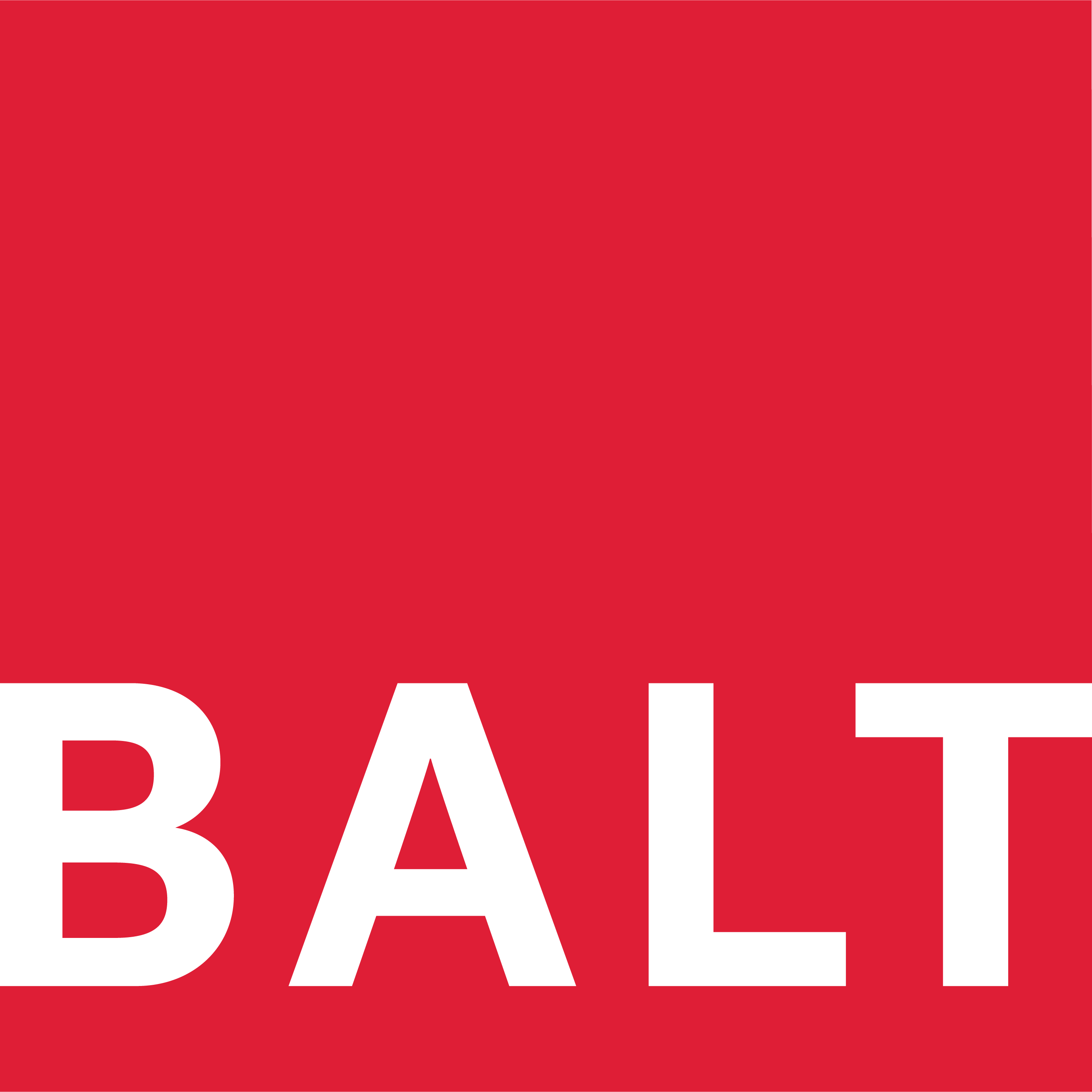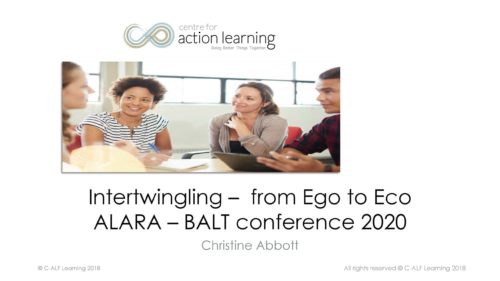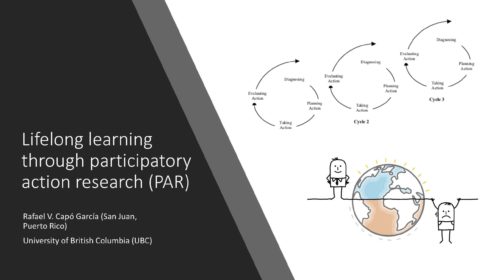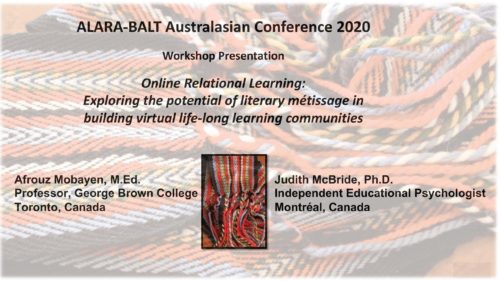| Christine Abbott Centre for action learning Facilitation (UK) |
Keynote address 2 Intertwingling: The role of action learning in collaboration |
| Rafael Capó Garcia University of British Columbia (Puerto Rico) |
Paper presentation 8 Lifelong learning through participatory action research |
| Dr Judith McBride Independent Education Psychologist (Canada) Afrouz Mobayen George Brown College (Canada) |
Workshop 3 Online relational learning: Exploring the potential of literary métissage in building online life-long learning communities |
| Dr Silvia Olivares Tecnológico de Monterrey (Mexico) Miriam Turrubiates Tecnológico de Monterrey (Mexico) |
Paper presentation 9 Action learning: challenges that impact on employability skills |

Christine Abbott
Centre for action learning Facilitation
United Kingdom
Intertwingling: the role of action learning in collaborating with others
Collaboration between organisations and within organisations isn’t a new idea. Every organisation connects with its staff and customers, suppliers, partners, and the community. However, relationships are generally transactional; selling to customers or buying from suppliers, negotiating with partners, and supporting community projects. More than ever, we need spaces and ways that encourage us to interrelate at a deeper level. We need to go beyond transactional relationships, beyond striving just to do things well. We need to do things better – better together – for us, our organisations, our communities and our planet.
About Christine
Christine Abbott is a co-Founder of the UK Centre for Action Learning Facilitation and co-author of Facilitating Action Learning: A Practitioner’s Guide. Based in East Yorkshire Christine is an experienced action learning facilitator and developer with a background as an HR Director in the NHS and in Social Care. In 2003 she established The Centre for Health Improvement and Leadership at University of Lincoln. Over the following 5 years she designed and delivered a range of bespoke leadership and organisation development programmes to a wide variety of public and private organisations. These programmes incorporated taught modules, action learning and coaching and mentoring. Christine currently teaches with the Open University Business School MBA programme.

Rafael Capó García
University of British Columbia
School of Education
Puerto Rico
Lifelong learning through participatory action research
Participatory Action Research (PAR) emphasizes the co-construction of knowledge by participants who conduct research on themselves rather than on others with the aim of correcting life’s injustices. Through an exploration of participatory action researcher’s autobiographical reflections, I reveal how our everyday lives and academic professions converge through PAR. This symbiosis shows how a life of PAR bridges the divide between the Global North and the Global South. Furthermore, I argue that PAR’s cyclical processes go beyond each individual PAR project and extends into an endless phasing between action and reflection, that turns life into one big PAR project, composed of many smaller participatory ventures. The fissures that separate our public and private lives are blurred by the participatory paradigm, as it becomes increasingly difficult to live life without adhering to its principles. As participatory action researchers navigate through the world, many of them realize that PAR is a cosmological way of life as they cycle through its phases until they no longer physically can. This paper appeals to researchers interested in lifelong learning, participatory action research, autobiographical writing, the convergence between activism and academia, and the ambiguity of public and private identities.
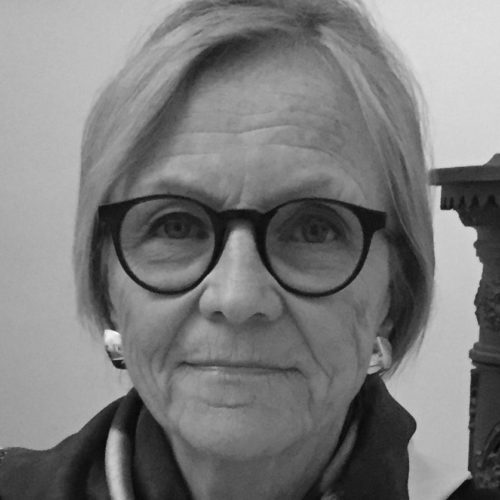
Dr Judith McBride
Independent Education Psychologist
Canada
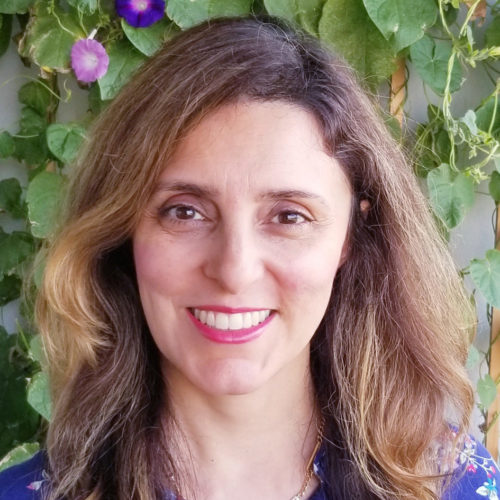
Afrouz Mobayen
George Brown College
School of English as a Second Language
Canada
Online relational learning: Exploring the potential of literary métissage in building online life-long learning communities
In this workshop, the authors will share reflections on a relational learning experience as instructor/learner/teacher/participant in an online basic action research course piloted by McGill University’s Language and Intercultural Communication Department. Within the framework of action research, online learning, and relational learning, we explore how the experience has influenced our ongoing, reciprocal teaching and learning. We ask: How might we create an online learning community that will foster relational learning? How might métissage be used in this context? Métisage (Hasebe-Ludt, Chambers, & Leggo, 2009) involves participants in the writing and sharing of autobiographical pieces. Points of accord and variance are nominated by all members of the group, and, by consensus, braided into a single piece revealing a singular, emergent perspective. We will engage workshop participants in the creation of a métissage, allowing them to learn the process, experience the impact of co-created knowledge, and understand how it can be used within various institutional, organizational or social contexts to effectively transform perspectives. Participants will have the opportunity to discuss the implications for their particular contexts. Subsequently, we will invite participants to question the validity of our inquiry asking: Is there a ring-of-truth to the report? Is the report coherent? Have we achieved consensus with participants? Is the method of use to others? Artefacts generated in the session – video recordings, reflections, métissages and feedback – will constitute data for the authors’ use as they continue their collaborative self-study/action research. Joining the workshop will constitute the participant’s consent. Finally , we will distribute a draft paper of our progress to date and invite critical commentary from the participants.
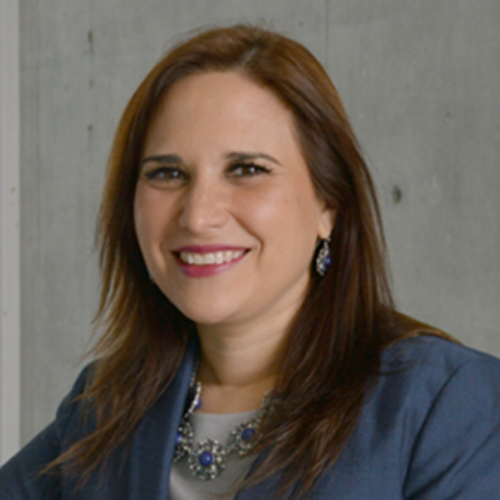
Dr Silvia Olivares
Tecnológico de Monterrey
School of Medicine and Health Science
Mexico
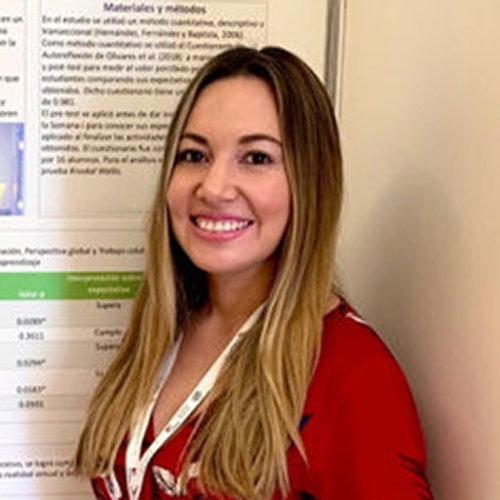
Miriam Turrubiates
Tecnológico de Monterrey
School of Medicine and Health Science
Mexico
Action learning: challenges that impact on employability skills
Academic institutions have the responsibility to create effective strategies to promote the development of competences to guarantee a prosperous professional career. As a result, there is currently great interest in higher education institutions to offer educational strategies to create value for students and society. The purpose of this paper is to assess the perceived value of an action learning experience (i-Week) on the development of important soft employability skills applying expectation confirmation theory (ECT).
The ECT was applied to assess the disparity between what was expected from students and their actual learning experience in 1,295 activities offered in 36 cities of ten countries with organizational, community, research, cultural or international focus in 2018. Each activity had a faculty member and multidisciplinary teams to address an authentic situation during one full-time week. A total of 929 students answered a Perceived Value Questionnaire to measure 14 transversal competences categorized on five employability skills.
Achievements were statistically higher than expectations in 5 out of 14 transversal competences. The perceived value of the i-Week reflects the impact on soft skills: self-skills, personal, learning, social and systemic. The evidence of this study is useful as an input for improvement in both individual and institutional instructional strategies. The paper proposed an integrated model to learn these competences from action learning experiences.
